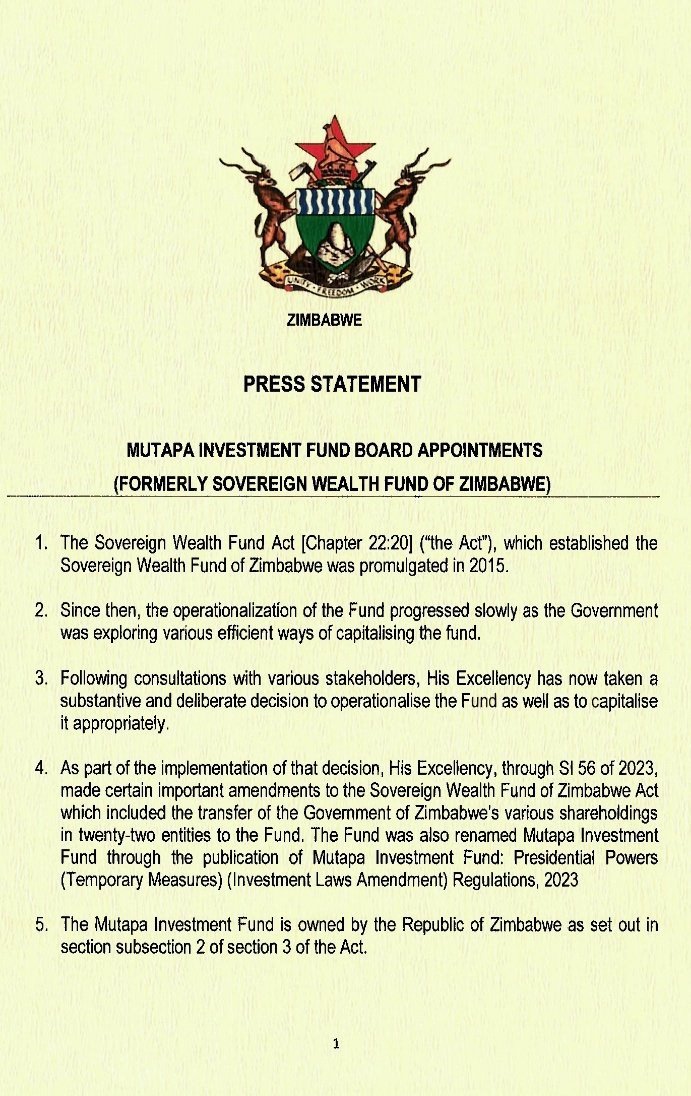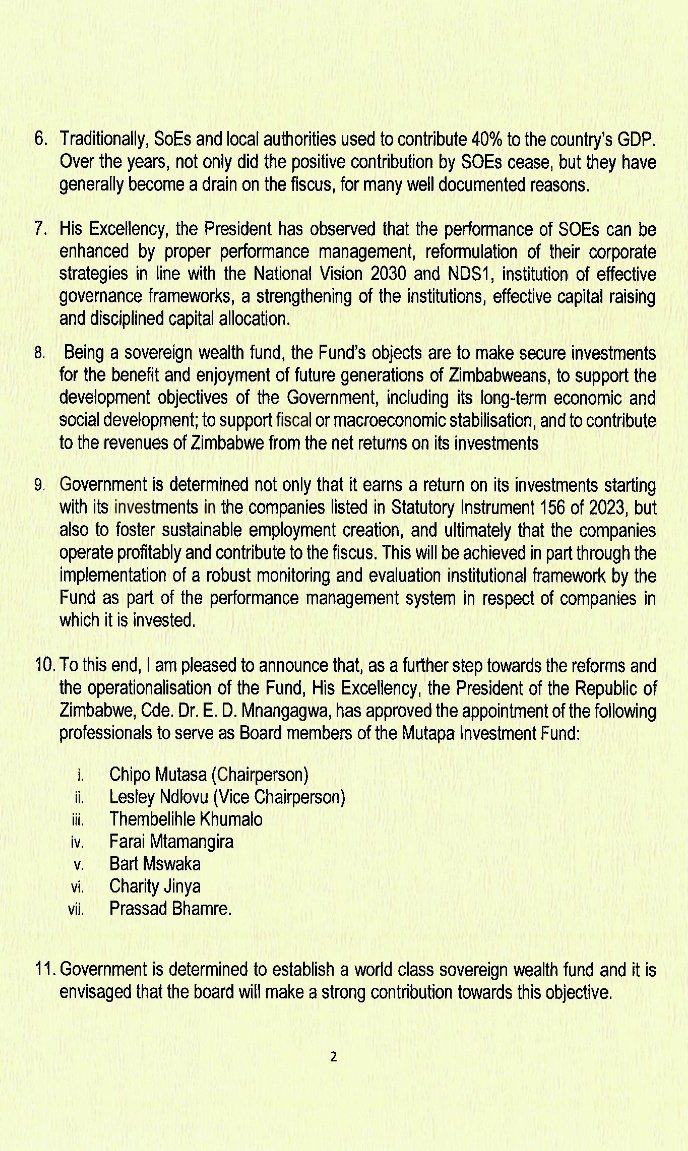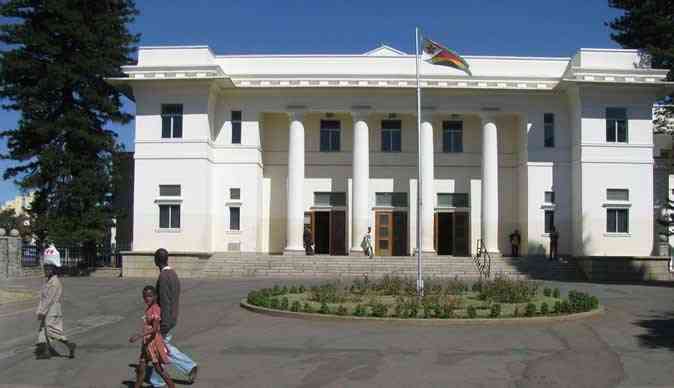
Seasoned executive Chipo Mtasa has been appointed to chair the board of the Mutapa Investment Fund as the government moves to operationalise the former sovereign wealth fund.
Mtasa will be deputised by Lesley Ndlovu. Other board members are top lawyer Farai Mtamangira, Thembelihle Khumalo, Bart Mswaka, banker Charity Jinya and Prassad Bhamre.
In a statement, Finance, Economic Development and Investment Promotion minister Mthuli Ncube said the appointment of the board came after consultations with stakeholders and President Emmerson Mnangagwa has “now taken a substantive and deliberate decision to operationalise the fund as well as to capitalise it appropriately”.
Ncube said Mnangagwa had observed that the performance of State-owned entities (SoEs) could be enhanced by proper performance management, reformulation of their corporate strategies in line with the Vision 2030 and National Development Strategy 1, institution of effective governance frameworks, a strengthening of the institutions, effective capital raising and disciplined capital allocation.
Previously, SoEs and local authorities used to contribute 40% to the country’s gross domestic product. Over the years, they have become a drain in the fiscus.
Through Statutory Instrument 56 of 2023, Mnangagwa amended the Sovereign Wealth Fund of Zimbabwe Act, which included the transfer of the government’s various shareholdings in 22 entities to the fund.
- TelOne picks EOS Data for agric platform
- Vandalism disrupts TelOne network
- Mtasa appointed AirZim board chair
- Mnangagwa renames Sovereign Wealth Fund of Zimbabwe
Keep Reading
The fund was also renamed Mutapa Investment Fund through the publication of Mutapa Investment Fund: Presidential Powers (Temporary Measures) (Investment Laws Amendment) Regulations, 2023.
The fund’s objectives are to make secure investments for the benefit and enjoyment of future generations of Zimbabweans, to support the development objectives of the government, including its long-term economic and social development; to support fiscal or macroeconomic stabilisation, and to contribute to the revenues of Zimbabwe from the net returns on its investments.
“Government is determined not only that it earns a return on its investments starting with its investments in the companies listed in Statutory Instrument 156 of 2023, but also to foster sustainable employment creation, and ultimately that the companies operate profitably and contribute to the fiscus,” Ncube said.













